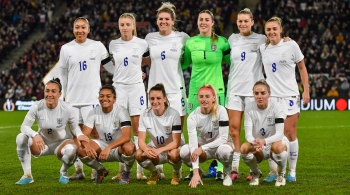The communications regulator must resist the 'Silicon-Valley-isation' of British television
I have had past experience of the David and Goliath relationship between British media organisations and the global (although largely American-owned) digital media corporations they compete with.
If you imagine doing business in the UK market as a game of football, then it is a game in which one side turns up to play according to well established rules of the Football Association.
The opponents, however, arrive and their captain says they don’t know much about "soccer", but he has 20 players, full body armour, three balls and his own set of rules – and he intends to use them all.
At this point, you desperately need a good referee.
Ofcom: a familiar presence
In this country, we have Ofcom. Broadcasters may not always like what they do, or in the case of the recently-proposed advertising restrictions that are meant to fight obesity what government makes them do.
But as long as the rules are being applied similarly to everyone, it’s unusual for anyone to argue with the ref once they’ve made a decision – at least out in the open (full disclosure: I worked at the regulator between 2008 and 2012).
Ofcom are a familiar presence; they communicate proactively with broadcasters, and their rule book evolved alongside the changing digital landscape of British television. Broadcasters know, fundamentally, any actions Ofcom takes are in the public interest.
Or to put it another way – whatever the local rivalries between different teams – British broadcasters understand, respect and play by the rules Ofcom sets.
This may not be perfect, but it works well. It allows PSBs to continue delivering against their purposes while underpinning a thriving commercial sector with room for Sky, BT, Virgin, non-PSB broadcasters and the increasing popularity of Netflix and other streamers. However, when the guy turns up with 20 players and his own rule book, you have a completely different ballgame.
British public-service television
American media companies don’t understand British public-service television. They found the balance between competition and cooperation strange enough when it was part of the management of limited available spectrum – but now with the whole digital world available to broadcasters, it doesn’t make sense to them.
And that’s just the American media corporations. When you introduce the Silicon Valley crowd, who regard their own national broadcasting market as something from the Stone Age, then any sense of participation over here is going to be very hard to find.
To be fair to the FAANGs, they genuinely believe they are “democratising” a failed TV system. But, as the recent Congressional hearings with the bosses of Facebook, Google, Apple and Amazon revealed, their form of “democracy” is just as worrying.
The answer to this regulatory question is therefore challenging. The task force set up by the Competition and Markets Authority to investigate how a future "digital markets unit" can regulate the internet will no doubt discover this.
A globally cut-throat market
Any solution to regulation of online harms needs some international foundation and this is not a time when international cooperation is booming.
And there are two hurdles that face regulators in the "Silicon-Valley-isation" of British TV. The first – the job of the Competition regulators is to ensure fair and equal access for all – consumers and broadcasters. That is a challenge in its own right given all set out above.
But Ofcom’s responsibilities go beyond fair play to ensuring that PSBs are able to play the game Britain wants.
This requires more than just being a fine umpire; it requires a degree of preference – if not for the institutions themselves per se, then certainly for the public-service outcomes they deliver, never more valuable than during the four-and-a-half months of Covid-19.
Ofcom’s current Review of Public Service Broadcasting is vital to safeguard real choice in a globally cut-throat market.
Whether it’s in sport or media, the UK historically led the world in ensuring new “games” are played by fair rules to protect what we value while embracing innovation. Never has this been more important.



